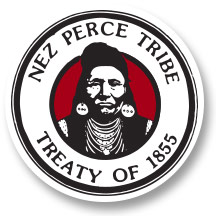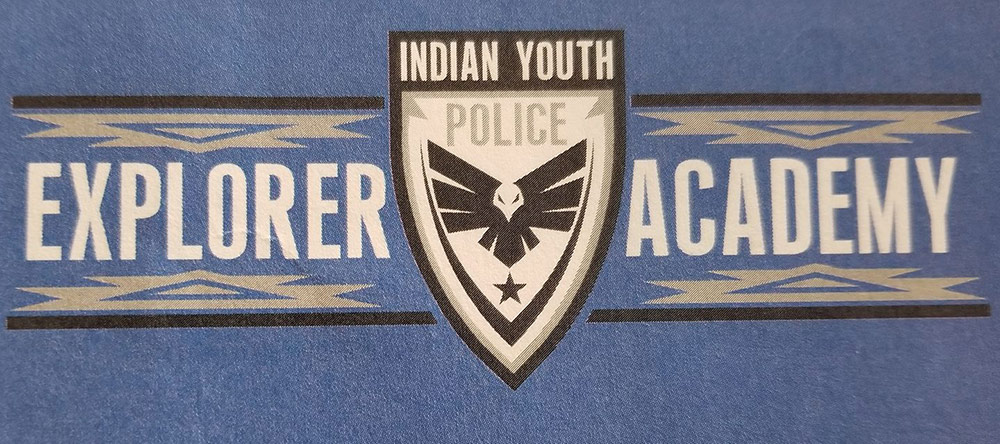Contact Us
To provide feedback on the Community Policing Dispatch, e-mail the editorial board at CPDispatch@usdoj.gov.
To obtain details on COPS Office programs, publications, and resources, contact the COPS Office Response Center at 800-421-6770 or AskCopsRC@usdoj.gov

U.S. Department of Justice
Office of Community Oriented Policing Services
Washington, DC 20530
 Encouraging young people to pursue a career in law enforcement is not easy anywhere, but it’s particularly difficult in tribal lands where many young people face challenges such as high rates of poverty, alcoholism, and drug abuse. Though these kids would greatly benefit from the support of Native law enforcement who understand their culture and know the problems they face, many don’t trust police officers. What’s more, they are vulnerable to temptations that can foreclose the possibility of a law enforcement career.
Encouraging young people to pursue a career in law enforcement is not easy anywhere, but it’s particularly difficult in tribal lands where many young people face challenges such as high rates of poverty, alcoholism, and drug abuse. Though these kids would greatly benefit from the support of Native law enforcement who understand their culture and know the problems they face, many don’t trust police officers. What’s more, they are vulnerable to temptations that can foreclose the possibility of a law enforcement career.
Fostering a New Generation of Law Enforcement Leaders
To change this situation, foster a new generation of Native law enforcement leaders, and build strong community relations, the Nez Perce Tribe in Idaho collaborated with its tribal police department to create the Indian Youth Explorer’s Police Academy (IYEPA). Launched in 2014 with support from a COPS Office Community Policing Development microgrant, the program encourages teenagers to consider a career in law enforcement by introducing them to police work through a variety of engaging activities.
Designed to encourage character development, physical fitness, good citizenship, and patriotism, the IYEPA activities and classes incorporate many components of Police Academy training. Among the law enforcement topics covered are tracking, firearms operations, officer safety, building clearing, tactical medical procedures, and giving court testimony. Physical fitness is emphasized in drills, swimming, and competitive sports; the program stresses the principles of community policing and public service.
Serious Fun and Games
Taught and supervised by volunteers from the Nez Perce Tribal Police Department (NPTPD), the Idaho State Police, and the Nez Perce Sheriff’s Office, the academy is organized like a sleepaway camp and is hosted on the Lewis-Clark State College in Lewiston, Idaho. Open to non-Native as well as Indian youth, its popularity has grown over the past four years, drawing teenage boys and girls from areas throughout the Northwest.
According to NPTPD Officer Jared Aubertin, who was an instructor in the 2018 program, this is because the participants not only learn a lot, but have a good time learning it. “These kids are very enthusiastic, every morning they were champing at the bit, ready to get started.”
They especially enjoy experiencing “real life” police work in simulated law enforcement scenarios and training exercises. Said Officer Aubertin, “The kids love acting like a police officer, putting on the gear, doing active shooter scenarios, learning arrest and control techniques, even report writing. They really get into the role playing.” One of the most popular activities is the crime-solving scenario, in which each participant takes an active part as lead detective, evidence collector, or another role to determine which of the “suspects” committed the murder.
Native American Cultural Emphasis
Along with the law enforcement training and presentations, the participants learn more about their Native culture. They play stick games, a traditional way of resolving disputes that is now played for fun, and develop team-building skills by working together to pitch tipis.
There is also an emphasis on Native history and language, with instructors who are familiar with Indian culture sharing what they know. Sergeant John Williamson, a volunteer who has Nez Perce heritage, taught some of the attendees words from this tribal language. Recently, he saw one of the young women who had been a participant. “She greeted me with ’tots maywee,’ which means ‘good morning’ in our tribal language. I got a kick out of that.”

New Understanding and Interest in Law Enforcement Careers
He also notes that in addition to a greater understanding of their culture, the participants gain a greater understanding of what it means to be a cop. Sergeant Williamson says, “they learned that our mission is not just to arrest bad guys but to serve our community.” One incident he recounts is of a boy he saw leaving a presentation on forensic interviewing techniques with tears in his eyes.
“I asked what was bothering him and he said that he remembered when his mother was beaten up and the officers who came to the house interrogated her, how angry he was at the time. He kept telling them to stop asking questions and take her to the hospital. He now realized why they had to do that first.”
Many of the kids who have completed the academy program have said they want to make law enforcement their career. One teenager has returned to the academy as a counselor, others have become security guards, and several more are starting criminal justice programs in college.
Everybody Benefits
Many of the participants’ parents have also reported that they have seen an improvement in their children’s behavior and a greater sense of responsibility, as well as an inclination to get involved in community activities. The effect on the officers was equally positive. Said Officer Aubertin, “It made me more understanding of these kids and put a little pressure on me to be the best I can. I want to be one of the reasons these kids become police officers.”
The officers emphasized that this program would not be difficult to replicate, and the Nez Perce Tribe is pleased to offer guidance to other tribal communities that wish to provide a positive, fun introduction to law enforcement for their young people by creating a Youth Explorer program.
Sergeant Williamson said, “I feel this is very important for Native youth, who are faced with so many obstacles that it is becoming harder and harder to recruit. There are many disqualifiers to becoming an officer, and I know people now in their mid-twenties who wish they had done things differently when they were teenagers so they could be law enforcement officers today. Whatever I can do to motivate any of our Native young people to move ahead in life, I will do—because in the Indian community if one succeeds, we all succeed.”
Faye Elkins
Senior Technical Writer
Subscribe to Email Updates
To sign up for monthly updates or to access your subscriber preferences, please enter your email address in the Subscribe box.






